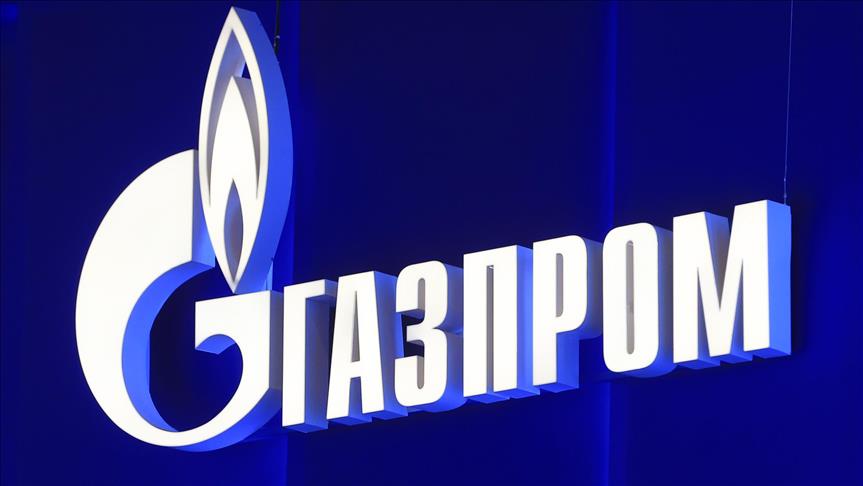- The Writer holds听an MSc in Eurasian Political Economy & Energy听from King鈥檚 College London and听also an听MA in European Studies from Sabanc谋 University.
听
Holding 17 percent of the world鈥檚 conventional natural gas reserves on its territory, Russia鈥檚 gas sector is strategically important not only for the country鈥檚 economy but also for its political leadership. According to World Bank data, the oil sector generates approximately one-fifth of Russia鈥檚 GDP. Russia鈥檚 energy industry, which was historically founded on large infrastructure investments, is still a focal point for the country鈥檚 economic future.听听
Gas revenue overall represents a smaller percentage of the federal budget compared to oil. Nonetheless, the natural gas sector is critical for the industrial development of Russia鈥檚 eastern provinces. Gas, in addition to its role in vitalizing the economy, has been considered by the Russian ruling elite from the beginning of the Soviet era as a part of a broader international political function. Consequently, its strategic importance has ensured that the Russian state holds the majority of the shares in the natural gas giant, Gazprom.
Gazprom, generally portrayed as Russia鈥檚 powerful monopolist, has held a starring role in carrying out the Russian gas sector鈥檚 strategic missions for decades. However, despite its many years of uncontested supremacy in the natural gas sector, the company became subject to rising competition from other new players, which began to topple Gazprom鈥檚 old export monopoly.听
When Russia鈥檚 policymakers pushed through prudent regulatory steps, the Unified Gas Supply System (UGSS)听company, once owned and solely used by Gazprom, started to offer its services to third parties ensuring that emerging competitor companies like liquefied natural gas (LNG) producer听
听Novatek and the Rosneft oil company benefitted from these deregulations. Competition between Russia鈥檚 newly emerging gas companies has grown to the extent that as of 2013, their overall natural gas production reached 25 percent of total gas production.听
Novatek鈥檚 strong ties with the Russian government and Rosneft鈥檚 ambition to secure a larger share of the LNG business began to challenge Gazprom鈥檚 once incumbent monopolistic position in the gas sector so much so that Gazprom was forced to reconsider its long-term investment plans. A newly ratified law on liberalizing LNG exports came into power in December 2013 and kicked Gazprom off its perch while allowing for Novatek and Rosneft鈥檚 entry to the LNG market. This strategy tested Gazprom鈥檚 export strategy, and although Gazprom is still dominant in pipeline gas, the new players are set to greatly impact the company鈥檚 future investment plans.听
Pressure on Gazprom has also arisen with the company鈥檚 insistence on oil indexation pricing in its contracts. Many players strongly oppose such trade with mounting, stiff competition from hub-based trading deals that have plummeted gas prices over many years. Gazprom鈥檚 attachment to oil indexation will need to dissipate when Russia鈥檚 gas prices can no longer compete against European hub prices, such as the Dutch TTF, the U.K. NBP or against the Henry Hub.听
Despite oil price shocks and greater domestic competition from newly emerging oil and gas companies, and the necessity to write off $4.5 billion in stranded assets from the South Stream gas pipeline project, Gazprom鈥檚 desire to adapt to changing circumstances may not occur as easily as expected.听
A combination of mild weather conditions, the imminent role of COP 21 that continues to affect many European countries鈥� energy mix choices, and the potential impact of greater LNG exports from Australia, the U.S., Africa and the East Mediterranean, are likely to put at risk Gazprom鈥檚 market share in Europe over the long term. When crude prices were at their height above $100 per barrel in 2014, Gazprom was able to maximize profits in spite of its competitors. Even though Gazprom relaxed its take-or-pay method for gas for many Western European countries, the company was able to increase its import volumes and compensated for its losses from the decline in European domestic gas production. However, as gas-on-gas competition became much more fierce since 2016, Gazprom realized that its current business strategy would not sustain over the long term unless the company adapted to the changing business environment.听
More availability of gas resources from newly explored gas fields worldwide as well as more hub-based LNG in the market is challenging Gazprom鈥檚 dominance in Europe鈥檚 gas mix. Although Europe鈥檚 falling domestic production was offset by Gazprom鈥檚 additional supplies, the shift towards a spot LNG market in recent years and the collapse in oil prices has pushed hub prices down forcing Gazprom to reevaluate its oil-indexed contract prices.听
The widening price gap that emerged over many years between spot prices and contract prices has narrowed down to the extent that contract prices have become marginally equal and even on some occasions have come in below spot prices. Gazprom鈥檚 lack of LNG development, its insistence on take-or-pay clauses, the arrival of new LNG supplies, and increasing competition from renewables and cheaper coal, have put great pressure on Gazprom to reconsider its current market strategy.
Overall, Gazprom鈥檚 efforts to exert influence over the European gas market and its insistence on its current contract structure promise to only end in failure over the long haul, potentially causing great profit losses and guaranteeing that Gazprom will lose its competitive edge. Currently, the best option available for Gazprom would be to adopt a proactive marketing strategy that works in line with European hubs.
- Opinions expressed in this piece are the author鈥檚 own and do not necessarily reflect Anadolu Agency's editorial policy.听


